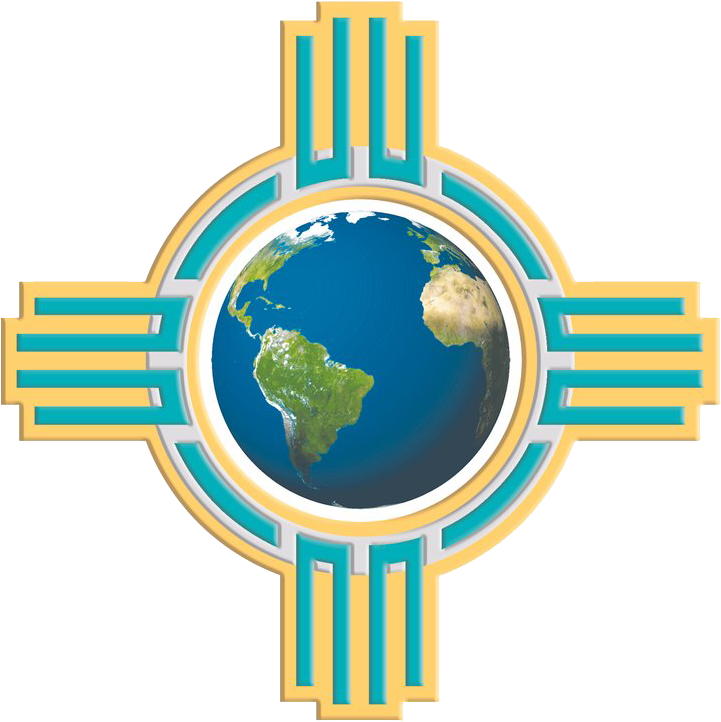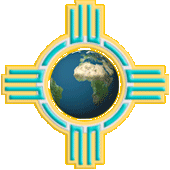
Global Awareness for Travelers
Program Overview
Three Dimensions of Global Awareness
Dr. Denise R. Ames’ intention when she created Global Awareness for Travelers was to offer travelers a more in-depth and culturally-rich approach to travel from what the travel industry has offered in the past. Her stated mission was for travelers to stretch their mindsets, expand beyond their comfort zone, fulfill their sense of well-being, facilitate personal transformation, learn new information, and have fun. After extensive research, thoughtful pondering, and careful observation, she has developed a program that fulfills her mission and helps travelers enhance their global awareness.
When developing the program for globally aware travelers, she found that its organization flowed around three distinct but interrelated dimensions that emerged as essential: outlook, knowledge, and sentiments.
Enhancing Global Awareness for Travelers:
Three Dimensions
1. Our outlook is our approach to travel, our attitude when traveling, or our generally mindset as we set out on our adventure. Having an open and flexible mindset when traveling is key to absorbing all the wonders travel has to offer us. To prepare our outlook before travel, I suggest the following: expand mindsets, think holistically, appreciate global perspectives, and hold balanced views.
2. Knowledge are facts, information, and skills acquired by a person through experience or education. Acquiring certain knowledge is an outward way for travelers to enhance their global awareness. I have identified and organized knowledge into what I call four paths: a holistic world history, five worldviews, cross-cultural awareness, and five global issues.
3. Sentiment is a thought, opinion, or idea based on a feeling about a situation, or a way of thinking about something. Identifying certain sentiments is an inward way for travelers to enhance their global awareness. I have identified and organized sentiments into what I call four paths: time-honored insights, personal and global well-being, travel as a mythic journey, and lessons learned from travel.
To achieve the goal of enhancing travelers’ global awareness, Dr. Ames has found that along with our outlook certain knowledge and sentiments are essential. These eight ways of understanding the world are arranged into eight paths—an outward and inward focus—each containing four paths.
She suggests thinking of the knowledge and sentiments as clues that can aid us to more deeply understand the culture, history, and lives of the people whose country we are visiting. As if we are solving a mystery, which in a sense we are, exploring these clues help guide us to a deeper way of traveling.
By recognizing and integrating these eight paths into our habits of mind and our everyday life, we can build a greater capacity to define what is meaningful to us and engage in the world more mindfully.
8 Paths to Global Awareness

Knowledge: Four Outward Paths of Global Discovery
Path #1 A Holistic World History:
Learning from the Past
The past has much to reveal to us if we listen closely and look deeply. From the big bang to the present, this holistic, “big picture,” easy-to-remember approach to world history draws on insights from our human past that help us understand the present and future. Starting 40,000 years ago, our human history is organized around five overarching cultural developments or critical turning points called waves—Communal, Agricultural, Urban, Modern, and Global. Each wave is holistic, meaning its five cultural patterns—ecosystem, techno-economic, social, political, and cultural—interact and reinforce each other and are repeated in each of the five waves.
Our underlying human nature, evolving through millions of years, provides the foundation for this holistic world history. History shows us that our common human nature—our innate behaviors and actions—explains the common ways humans have built their societies and shaped their cultural developments. Even though humans have created distinct cultures, they all have underlying commonalities. Learning from the past, in which humans have gone through five developmental changes, will help us sort out and give greater meaning to the bewildering array of historical places and events we encounter on our travels.
Path #2 Five Worldviews:
Different Ways We See the World
Do you sometimes wonder if we will ever get along? This path has identified five worldviews found in the US and also throughout the world:
1. The Indigenous Worldview is made up of any ethnic group sharing a similar ethnic identity and inhabiting a geographic region with which they have the earliest known historical connection.
2. The Traditional Worldview consists of political conservatives, the populist right, alt right, and religious fundamentalists. They support established societal customs and beliefs and only wants incremental change.
3. The Progressive Worldview encompasses the liberal/progressive left. Moderate progressives embrace reform of institutions, while those on the far left may call for a political revolution to overthrow liberalism and reformulate society into their ideal version.
4. The Globalized Worldview is a complex phenomenon that interconnects worldwide economic, political, cultural, social, environmental, and technological forces, while transcending national boundaries.
5. The Transformative Worldview are millions of diverse people sharing common principles such as interdependence, sustainability, community, alternative health, nourishing foods, renewable energy, spiritual connections, ceremony, and other life-enhancing ways of living.
Only looking at issues from a single lens, or just one worldview, only shines light on part of the problem. Instead, we need to look through multiple worldviews when contemplating our local, national, and global difficulties.
Path #3 Cross-Cultural Awareness
Learning About and From Others
Is everyone else weird and Americans normal, or vice versa? Are there Eastern and Western cultural differences? We grapple with these questions and more by looking at an array of cultural differences that people exhibit.
This section is organized into six groupings:
1. Understanding American Culture, understanding our own culture is instrumental in understanding others.
2. Cultural Expressions: A Cross-Cultural Awareness Organizer is for the purposes of improving cultural comparison and facilitating cross-cultural communication by organizing cultural characteristics into clear categories.
3. Phases of Cultural Awareness is an adaption of Milton Bennett’s Developmental Model of Intercultural Sensitivity (DMIS) that differentiates various stages or phases of cultural awareness.
4. Clashing Worldviews: Modern and Indigenous highlights their economic, social, religious, political, psychological, and environmental differences .
5. Differences between Western and Modern is another cultural distinction important for travelers to understand.
6. Weirdness in the West. Weird people are Western, educated, industrialized (individualistic), rich (by world standards), and democratic. They are outliers of the general human population. Americans are more extreme outliers than Europeans, and within the US, the well-educated, upper middle class is the most extreme of all. In other words, if you are reading this book, you are probably WEIRD.
As the U.S. and Europe become more multi-cultural and interactions with different people increase, it is vital that we learn more about how and why others have different perspectives and hold diverse values.
Path #4 Five Significant Global Issues:
A Primer for Travelers
The world is complex. Dr. Ames gives a general overview of what she considers five of the most significant global issues travelers may encounter or want to know more about: environment (sustainability, energy, ecological footprint, water), global economy, political structures (forms of governance, war, conflict, foreign policy), social issues (migration, women, human rights, inequality, family), and belief systems (religion, animism, worldviews).
“I travel because it makes me realize how much I haven’t seen, how much I’m not going to see, and how much I still need to see.” – Carew Papritz

Sentiments: Four Inward
Paths of Global Discovery
5. Time Honored Insights: Integrating Wisdom of the Ages
Consciously integrating five time-honored insights—understanding, balancing, connecting, opening up, and laughing—into our travels can give depth, clarity, and meaning to our experiences. Like the ancient philosophers of the past, these insights have unlocked wisdom for all of us to ponder and apply to our daily lives. You may wish to reflect upon these five insights as you embark upon your travels.
6. Travel as a Mythic Journey: Embarking Upon a Personal Quest
I like to imagine travel as taking part in a mythic journey, a personal quest to deepen my insights about my inward life and my greater purpose in the outer world. You may want to imagine this as well! Going beyond what is familiar to explore what is possible is a goal of the mythic journey. This journey may lead us to make peace with the world and ourselves, appreciate the balance of all things, and bring back something valuable to share with others at its completion.
8. Lessons from Travel: Applications for Our Daily Life
Travel is like uncorking a bottle of champagne, once unleashed many things come gushing out. Some of us may choose to keep our travel “corked,” while others may wish to experience its full gusto. The lessons of travel may be simple, such as renewing our relationships with family or friends, or multi-faceted, such as undergoing a major transformation in one’s life. Although travel has the capacity to teach us many lessons, we need to be able to uncork its clues and share its gusto.
7. Exploring Well-Being: Travel as a Journey of Discovery
Travel provides many spontaneous opportunities to explore our personal well-being and clarify our meaning and purpose in life. Personal well-being is a state of being which is characterized by meeting basic human needs, enjoying optimal health, finding contentment, expressing creativity, living in accord with nature, and defining our meaning and purpose in life.
“If you are not willing to risk the unusual, you will have to settle for the ordinary.” - Jim Rohn








